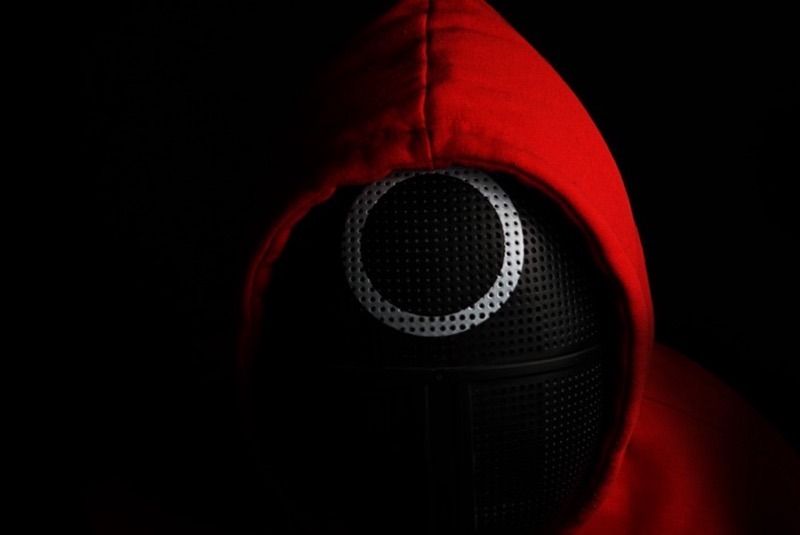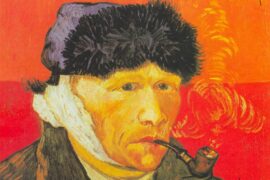Have you ever wondered what a true neoliberal capitalist utopia would look like? How would people behave, think and act in a perfect neoliberal capitalist utopia as imagined by theorists of neo-liberal capitalism?
If not, then the two-part South Korean web series Squid Games will bring you closest to the imagination, closest to Thomas Hobbes’s conceptualisation of the state of nature; a social condition which can be described as a place where “there is no right and no wrong; no justice and no injustice…[where]… force and fraud are the cardinal virtues. [Where] every man has a right to what he can get, and for just so long as he can keep it.”
In the state of nature, there is a “war of all against all,” humans are driven by self-interest and a desire for survival, resulting in inevitable conflict and competition over limited resources. Hobbes’s conceptualisation of the state of nature is underpinned by a particular view of human nature: his “human beings” are not too far removed from the modern “homo economicus”; they are selfish, rational, and relentless maximisers, concerned primarily with their own welfare.
According to Hobbes, human beings emerge from this “war of all against all” society by signing a social contract, submitting their rights and power to an all-powerful Sovereign (Hobbes called it Leviathan). The function of the Leviathan (or the State) is to establish order, peace, and security by formulating rules of engagement among members of the polity and imposing control over their primaeval impulses.
The neoliberal Leviathan takes the Hobbesian conception of human nature in a positive light, something to be unleashed. It does not aim to mitigate the “war of all against all” but to regulate and channel it via the market by pushing competition, self-preservation and self-interest to its maximum. Primeval impulses are promoted as virtues to be inculcated by everyone.
In the neoliberal version of capitalism, facilitated actively by the neoliberal state, all social relations are transactional, meaning market principles of exchange, competition, and cost-benefit calculations guide interactions between individuals. Social bonds and communal values are diminished, relationships are judged by their economic or instrumental value, and morality, ethics, and community welfare are subordinated to the logic of profit and individual gain.
These aspects of neoliberal capitalist society have been described in academia through cynical phrases like “cut-throat competition”, “dog-eat-dog-society,” and “survival of the fittest,” etc. They have entered the popular domain by showing critique but simultaneously with a helpless acceptance of the neo-liberal social-economic order. This depiction finds a striking parallel in the ruthless, cutthroat dynamics of the Squid Game universe, where the logic of survival and self-interest reign supreme, exposing the dark underbelly of a society that prioritises competition and individual gain above everything else.
Created, directed and written by Hwang Dong-hyuk for Netflix and starring Lee Jung-Jae in the lead, Squid Games universe is the nearest possible depiction of the Hobbesian state of nature: a society in which debt-ridden people become players in a game actualising the mottos of neoliberal capitalism. You will see the “virtues” of “cut-throat competition” getting actualised as players literally cut each other’s throats to survive. You will know what the phrase “dog-eat-dog society” means and what a social Darwinist society captured in the phrase “survival of the fittest” looks like. The series, though categorised as dystopia in actuality, represents neoliberal utopia.
Season two begins where season one ended; “You still trust in humanity being good?” was the last question asked by the creator of the game, Oh Il-nam (played by O Yeong-su), while lying on his death bed to Seong Gi-hun (played by Lee Jung-jae), the winner of the inaugural Squid Games. Fast forward three years, suffering from survivors’ guilt, Seong Gi-hun has been on the lookout for the runners of the games and hopes to find them to end it all. He spends his prize money to hire a gang to look for the recruiter.
Seong Gi-hun is joined by a police officer, Hwang Jun-ho (played by Wi Ha-Joon), who had infiltrated the previous game to find his brother, who turns out to be the Front Man, Hwang In-ho (played by Lee Byung-hun). Hwang In-ho also joined the second season as player 001, previously played by Oh-Il-nam. Apart from these characters, there are players who have opted to join the game either to pay their debts or to help their children come out of debt or to arrange money for their son’s treatment, to arrange money for sex change operations, etc.
In short, these desperate, helpless people think that “life out there in the world, is not so much different from life in here, in the games”. Season two of Squid Games revolves around the question: are human beings inherently good or bad? How ready are they to cut the throat of others to benefit from it, as each dead player means an additional 100 million Won in the piggy bank?
Hobbes vs Rousseau: One More Game!
In the first season, there was a rule that if the majority of the players voted to quit the games, they would be allowed to do so, but the prize money collected would go to the families of those who were eliminated (meaning killed). This clause certainly tilted the balance in favour of those who wanted to continue the games since quitting would mean putting their lives at risk without any gain.
However, in the second season, the clause on voting remains the same, but the condition of the distribution of prize money changes. Now, if the majority of players vote to quit the games, all players are entitled to an equal share in the total accumulated prize money. This clause is meant to test the limits of human empathy and greed, as well as selfishness and selflessness. As more players die, the total prize money keeps increasing, increasing each player’s share. Seong Gi-hun, who is convinced of the inherent goodness of human beings, feels dejected, particularly after the second and third games conclude and voting takes place. Every time, those who want to quit the games lose, as greed prevails over empathy.
The games, in both seasons, are designed to test the limits and nature of human nature. In one game, players have to work together, developing a sense of community and solidarity. In the next game, they are made to compete with each other and choose among their erstwhile community members, which naturally tests their trust in each other, leading to the development of enmity.
The voting system again tests their trust levels, as one team member might vote YES, while others might vote NO for continuing the games. Trust, solidarity, empathy, friendship, and enmity become uncertain, bringing us close to what Sociologist Zygmunt Bauman calls ‘liquid modernity’, an era of uncertainties in every realm of life. In this scenario, ‘One More Game!’ the title of episode six, becomes a metaphor for “dog-eat-dog society”, as players know that their prize money depends upon the death of co-players, and each one of those who want to continue the games wishes for the death of as many players as there can be.
A perfect Neoliberal Democracy?
“During these games, we will always respect your right to freedom of choice,” says the captain of the staff of the Squid Games at the end of each game, announcing the voting. But before the voting process begins, he also announces how much money has been accumulated, which relegates all the horrors and death to the background and brings forth ‘greed’ in the players.
Voting takes place under the shadows of the gun. The Leviathan of the Squid Games universe, embodied in pink jumpsuit-wearing masked people, are there to facilitate a free and fare voting process by not allowing anyone to influence the voting process.
The Squid Games Levithan is a perfect neoliberal state, as its only job is to ensure free, cutthroat competition among the players. The state does not intervene, except when people try to subvert the logic of a free market by developing solidarities. Thus, when an equal number of people vote YES and NO after the third game, the Leviathan subtly distributes forks among the players to unsettle the balance, as those who want to leave might convince just one player to vote in their favour.
The Squid Games universe presents the essence of the neoliberal democratic order in another existential sense: the commodification of life.
How much is a human life worth? This question has animated a lot of thought from commoners, philosophers, jurists and criminals. For commoners, the worth of human life is subjective, depending on the relationship they share with the concerned life. Philosophers, since they hardly agree on anything, are still debating.
For jurists and, by extension, for the State, the value of human life is derived from the funds available with the concerned State department. It is only the criminals who have been able to put a precise price on the value of human life when they decide to kill/murder anyone for an amount ‘X’ depending upon the stature of the individual and the difficulty of the ‘assignment’.
The masked frontmen running Squid Games are true democrats in this sense, the perfect free marketeers, as they have fixed the price of human life at 100 million Won (equivalent to 6.2 Crore INR, much more than what the state compensates). There is no hierarchy between the rich and poor, between the erstwhile billionaire and the penniless. All Lives are Equal! The fact that they are under huge debt makes them equal; the amount of debt they each own does not matter.
Perversion of Innocence: The Uncanny, the Unsettling, the Spine Chilling!
If you have ever encountered the term ‘uncanny’ and are unsure what it means, Squid Game Universe is a good visual tool for understanding the concept. ‘Uncanny’, a term used to denote the psychological experience of encountering something familiar in a frightening or unsettling context, forms the foundation of Squid Game’s distinctive aesthetics.
The uncanny and disturbing aspects of the Squid Games universe stem from its stark juxtaposition of childhood innocence, as participants are made to play children’s games typically associated with fun and nostalgia, and the brutal, life-or-death stakes that transform these innocent activities into horrific battles for survival, creating a profound psychological dissonance.
Piggy bank- a childhood practice becomes the bank filled with the players’ blood. Nursery rhymes are played as players kill each other. In the Squid Games, innocence gets perverted; it is mocked. The use of the colour baby pink- associated with softness and warmth- in the already disorienting labyrinth-type architecture further adds to the uneasiness. The dark pink jumpsuit-wearing guards, with faces hidden behind black masks, embody the impersonal machinery of capitalism.
The guards, along with the entire game bureaucracy, enforce the rules with clinical detachment and precision, which might even put the Nazi bureaucracy to shame! They are all instrumental rationalist, just doing their job of “eliminating” those who lose the game. Some of them take instrumental rationalism to its height as they engage in selling the organs of players who have been shot. Of course, why not? After all, those players are already dead! So why not make the most out of it? If Max Weber had been alive, he would have called it the ideal type of bureaucracy.
One can say that Squid Games is an exaggeration, but the question is, is it an exaggeration? Or is it just a representation of an ideal neo-liberal capitalist society defined by free competition, luck and individualism? The answer depends upon the viewers and their ideological makeup.
The central character of Squid Games, Seong Gi-hun, can be rightly called an embodiment of Rousseau’s conception of human nature, that human beings are inherently good and moral, only corrupted by society. In the first season, he shows compassion and empathy, shows remorse for deceiving player 001, wants to quit the game without caring for money, after winning, does not spend a penny from it, and finally accepts the death-bed challenge by player 001 regarding the goodness and morality of human beings.
In the second season, he enters the game to end it and tries to save people, but every time, he votes NO. But, as the series proceeds, dejection becomes apparent on Seong Gi-hun’s face, as he constantly loses against those who want to continue with the games despite all the blood and horrors. Probably by the end of season two, he begins questioning his quest to save players from themselves and might accept the reality!
-30-
Copyright©Madras Courier, All Rights Reserved. You may share using our article tools. Please don't cut articles from madrascourier.com and redistribute by email, post to the web, mobile phone or social media.Please send in your feed back and comments to [email protected]











